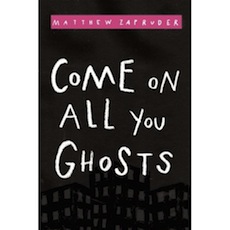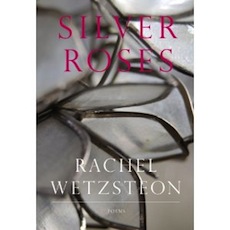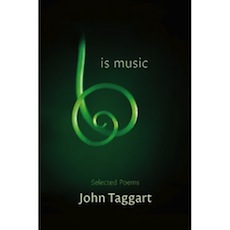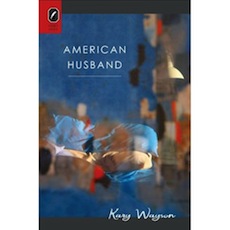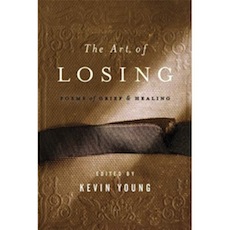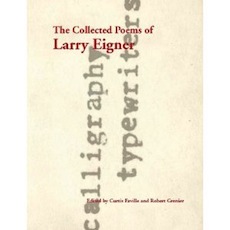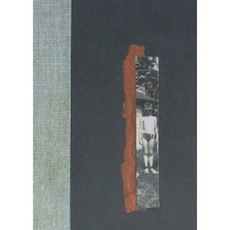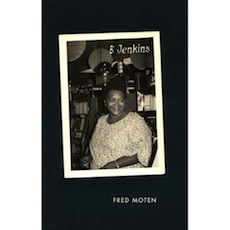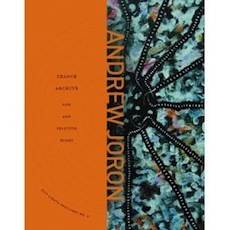Best of 2010: Staff Picks
Flowers, by Paul Killebrew
(Canarium Books)
“I’m so happy to have a body to fill these terrific pants...” —From “ILOVETHEWHOLEFUCKINWORLD”
—Fred Sasaki (Associate Editor, Poetry magazine)
Come On All You Ghosts by Matthew Zapruder (Copper Canyon Press)
Silver Roses by Rachel Wetzsteon (Persea)
I love love poems. I also <3 NYC. So it's no wonder that I appreciate Rachel Wetzsteon's book full of aching love poems set in New York City whose palpable wrestling with form keeps pain a gorgeous, obvious arm's length away. My non-poetry-reading friends like the book too—they pick it up, encounter lines like these: "One must live in the present tense,/observed Bette Davis, but I have/always lived in the present/tensely," and keep on going.
In Zapruder's inspiring third book, we are among the ghosts he challenges to be here now. These poems are courageous (he takes on Wordsworth); profoundly, momentarily sad; oddball funny-- Coke is "nothing plus the idea of chocolate" (which it totally is); and completely readable. Zapruder is a master of surprise spread over the course of several lines, but here's a book that delivers that protracted delight over the course of an entire collection. —Catherine Halley (Editor, poetryfoundation.org)
Is Music by John Taggart (Copper Canyon Press)
American Husband by Kary Wayson (Ohio State University Press)
—Ilya Kaminsky (Director, Harriet Monroe Poetry Institute)
Come On All You Ghosts by Matthew Zapruder (Copper Canyon Press)
The Art of Losing edited by Kevin Young (Bloomsbury USA )
Grief is not a new subject in the realm of poetry, and it was certainly not underserved in 2010. Several great collections—among them Matthew Zapruder’s Come On All You Ghosts—devoted themselves to the subject.
One collection that didn’t get nearly as much attention as Zapruder’s is Kevin Young’s anthology, The Art of Losing. The collection features both contemporary and stately poets—from New Yorker darling Matthew Dickman to Auden—in a volume offering a range of voices and reactions. It feels as though there’s nothing that can be said when a loved one passes. These poets found a way.—Kristin Esch (Media Assistant, Poetry Foundation)
The Collected Poems of Larry Eigner, Volumes 1-4, edited by Curtis Faville and Robert Grenier (Stanford University Press)
Eigner composed approximately 3,072 poems, several dozen of which were published in Poetry. And like Dickinson: though he was prolific, almost every single poem he wrote is worth reading, which makes each one a gift.
In the pages of Poetry way back in 1962, Galway Kinnell wrote:
At first it seems that Larry Eigner is an onlooker, but as one reads on it becomes clear that he deeply inhabits the world. He throws away all chances to make commentaries or to philosophize, and he doesn't care a nickel for his own skin or to tell us "How sensitive I am!" At his best he writes in a kind of state of grace with respect to the real, an openness and trust between himself and the world, by which the two blur, and real objects keep dissolving towards a deeper, stranger reality. His best lines are less invented descriptions than the acts themselves of this contact.—Don Share (Senior Editor, Poetry magazine)
Nox by Anne Carson (New Directions)
A lot has been said about Anne Carson’s Nox this year, and with good reason—it is a beautiful, devastating scroll-in-a-box that serves as an elegy for Carson’s brother while also dynamiting the traditional book format and creating a entrancing conversation about the delicacy of translation (reworked definitions of Latin words provide half of Nox’s content), the methodology and origins of history, and the function of family. What do I mean by “entrancing”? The morning after I purchased Nox, I didn’t have any food in my apartment. Before leaving for the grocery store, I opened it up. I didn’t move for four hours and was sick the rest of the day from drinking six cups of coffee on an empty stomach. That is all to say: be careful about when you open Nox, but please, if you have not already, open it. —Claire Tolan (Web Intern, poetryfoundation.org)
B Jenkins by Fred Moten (Duke University Press)
There was a labradoodle-sized box of great books published in 2010—CA Conrad’s The Book of Frank, Mathias Svalina’s Destruction Myth, and Don Mee Choi’s The Morning News is Exciting, to name a few on my desk right now—but the book that stuck with me the most (haunted me?) was Fred Moten’s B Jenkins. An elegy for the poet’s mother, as well as an exploration of what “roots” and influence might and could mean, it's an exploration into the cultural spaces where words don't (normally) go . —Travis Nichols (Associate Editor, poetryfoundation.org)
Trance Archive by Andrew Joron (City Lights Spotlight Series)
The reason I picked this among the many great books from 2010 is that Joron is one of those rare writers whose poetry seems to come from a deeply strange, otherly place, where the rules it follows are derived from the commands of another world. Unlike any other book I've read this year, I received a visceral shock at the end of every line in Joron's poems, and feel an unfolding strangeness with each rereading. The book is well edited, giving an overview of Joron's writing from the past 20 years, and includes work that's out of print. Also, the City Lights Spotlight itself is off to a great, adventurous start with titles by Norma Cole, Anselm Berrigan, and Cedar Sigo. —Michael Slosek (Permissions Coordinator, poetryfoundation.org)




